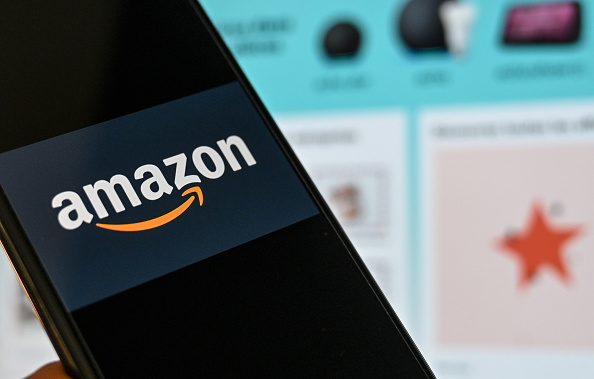From HelloFresh to Glossybox, monthly subscriptions have not only taken the nation by storm, but they’ve inspired Britain’s entrepreneurs to rethink the traditional business model. Businesses no longer have to look to their company website or a retail environment as the key platforms to interact with their customers.
Indeed, the rise of the likes of Graze, Pact and even ground-breaking healthcare mobile app, Babylon has prompted a wave of businesses to position themselves as a solution to a consumer need, rather than simply providing a product against a cost. Speaking at Subscribed London 2016, Fredrik Östbye, VP IoT, Telenor commented on this new wave of disruptors, ‘What we now see is a trend of innovative start-ups that instead of just solving a problem, provide a service and take a piece of a value created by that service.’
Digital customers expect more
These companies all realise that we now live in a digital world, and it’s no longer sufficient just to design and ship products. The modern digital-first consumer expects a very different experience. Also speaking at Subscribed, Jean-Pierre van Tiel, head of commercialisation at Hive revealed that he was inspired by the lifetime customer relationship management of leading sportswear brand, Nike, to adopt the same values for the utilities provider’s relationship with its own customers. Moving from being a provider of products to a service provider that is with the customer every step of the way.
Consumers expect an experience that gives them outcomes without the hassles of ownership. They expect an experience that is customised and personalised, that watches their behaviours, remembers their preferences, and adapts to their needs. An experience that evolves, gets better and continuously delights.
If you’re starting a new business in the subscription economy, you need to stop treating your customer as someone whose sole purpose is to buy your product. You will build a much healthier business, create a stronger strategic advantage, and accelerate your growth if you re-imagine your customers as subscribers.
Subscribers represent potentially far more value to your business, but they need to be treated like intelligent, discerning business partners rather than single points of sale. Rabin Yaghoubi, chief commercial officer at Babylon shares this view: ‘What Uber is doing is taking an existing concept and making it easier and cheaper. Subscription-based models aren’t new either, but by creating pricing models that are understandable and that consumers are used to, you’re able to make your brand far more accessible to a wider range of consumers.’
Competing in the subscription economy
It’s a very exciting time. An old era is coming to a close. Digital transformation is the new opportunity. The world GDP stands at 80 trillion dollars, and all of it is up for grabs. So how can companies succeed in the subscription economy? Let’s break it down by role and business need.
Let’s start with finance. Ten years ago, the core imperative of the finance team was to track all the expenses in your company and align them with your unit of sale. What was the cost to come up with the original idea? How much money did you have to give the channel as part of that sale? How much was your overhead? Fixed costs were tallied up in order to arrive at a tidy marginal profit. Things were fairly simple.
Today, however, your expenses need be aligned to acquiring revenue over time. That entails a whole new array of subscription finance metrics: the cost of customer acquisition, lifetime customer value, the average revenue per customer. Sales and marketing costs, for example, start to act more like capex than opex. Why does Netflix make massive investments in content that isn’t technically “sold” to anyone? Because their finance team is obsessed with maximising the average lifetime value of their subscribers, and they can tie those costs directly to ACLV.
Similarly, on the sales and marketing side, the question has changed from the relatively straightforward ‘How do I move more units off the shelf in order to lower my cost per unit and increase my profit margins?’ to ‘Given that subscription pricing is fairly elastic, how do I experiment with new pricing and bundling ideas? How can I rearrange my offering to move quickly into a new market segment?’
For example, when the cloud-based survey company SurveyMonkey decided to pursue overseas markets, they were able to quickly support 17 different languages, 28 currencies, and dozens of new product packages. That’s a startling amount of business agility. That represents the freedom to experiment and deploy.
A relentless subscriber focus
Finally, in terms of overall leadership, the key imperative is transforming your entire business to become relentlessly subscriber-focused. In the product economy it was fine to work in traditionally siloed organisational structures; in fact, it was practically mandated. Marketing handed off their research to product, which in turn passed the baton over to sales. That model is no longer operative. Stephen Millard of VC firm Notion Capital echoes this point, stating that ‘the key aspect that sets the best start-up businesses apart is always the people. Their ability to transition themselves from founder, to leader to CEO and have a high-performing team at every stage is also fundamental.’ In this new world, where the subscriber at the centre, these silos must come down.
So how will you wrap your company around your subscribers? It starts with finding out what’s most important to them and putting those imperatives on a wall. In large letters. Use this approach to rethink how you approach your overall business model. By pricing in support of your business goals, you’ll be able to cultivate deeper customer relationships that hinge on more than simply your product offering, but instead speak to your identity as a brand.
Car subscription
There are new players in the subscription market going for this model in different sectors, such as car subscription company Wagonex.
John Phillips is VP EMEA of Zuora.





